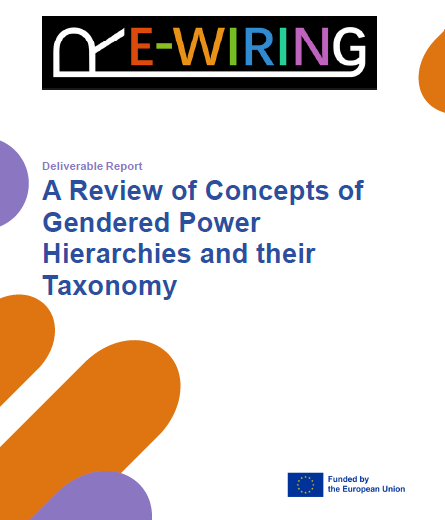The RE-WIRING project is focused on gender inequality, acknowledging that even seemingly gender-neutral institutions are inherently gendered. Institutions, as defined by North, represent the “rules of the game” shaping human interactions, and both formal and informal institutions tend to reflect and reinforce male-dominant standards.
The project recognizes the need for a holistic approach to understand and address the challenges posed by patriarchy and gender inequality, especially in the wake of the pandemic. In line with the Committee for the Convention on the Elimination of All Forms of Discrimination against Women (CEDAW), gender is viewed as socially constructed identities, roles, and attributes, resulting in hierarchical relationships favoring men.
In the pursuit of gender equality and empowerment, RE-WIRING advocates for a transformative approach that goes beyond individual solutions. The project aims to dismantle systemic processes contributing to inequalities across public and private institutions, emphasizing the importance of rethinking and ‘re-wiring’ existing institutional approaches.
To achieve this, the Transformative Equality Approach (TEA) is proposed, focusing on understanding and challenging group-based and systemic dimensions of gendered power hierarchies. RE-WIRING investigates obstacles hindering inclusion, representation, and empowerment of girls and women, aiming to identify and craft solutions for long-term transformation. The project actively involves women, girls, and various stakeholders in co-creating solutions for a more gender-equal society.
The development of a taxonomy capturing dimensions of gendered power hierarchies serves as a foundational step. This taxonomy, outlined in a recent paper, lays the groundwork for the operational concept of TEA and a research methodology template. These elements will guide the overarching conceptual and methodological framework for all RE-WIRING work packages.
Key questions underpinning the project include understanding gendered features impacting labor markets, workplace interactions, and institutional culture. Additionally, the project aims to identify best practices, assess the role of law, consider national and cultural contexts, enhance institutional ownership, and explore pathways for constructive and structural change.
As RE-WIRING advances, it seeks to not only contribute to knowledge and its application but actively collaborate with diverse stakeholders to pave the way for transformative equality in society.






